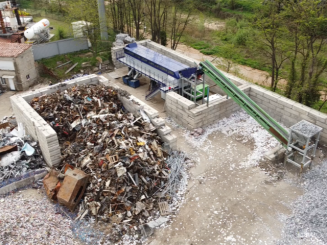Waste shipments: MEPs adopt tougher EU rules
Exporting plastic waste to non-OECD countries will be prohibited. Shipping of waste for disposal in another EU country to be allowed only exceptionally.

European Parliament approved updated EU procedures and control measures for waste shipments.
With 587 votes in favour, eight against and 33 abstentions, MEPs endorsed the deal reached with the Council, which aims to protect the environment and human health more effectively, while contributing to the EU’s circular economy and zero pollution goals.
The rules for exporting waste from the EU to third countries will be stricter. Plastic waste exports to non-OECD countries will be prohibited within two and a half years after the entry into force of the regulation, while those to OECD countries will be subject to stricter conditions.
Within the EU, the exchange of information and data on waste shipments would be digitalised, through a central electronic hub, to improve reporting and transparency. Shipping waste destined to be disposed in another EU country would be allowed only in exceptional circumstances.
The law also establishes an enforcement group to improve cooperation between EU countries to prevent and detect illegal shipments.
Background
The proposal to reform the EU’s rules on waste shipments lays down procedures and control measures depending on the waste’s origin, destination and transport route, as well as the type of waste and the treatment it will undergo at its destination. In 2020, EU exports of waste to non-EU countries reached 32.7 million tonnes, representing about 16% of global trade in waste. In addition, around 67 million tonnes of waste are shipped between EU countries every year.
In adopting this report, Parliament is responding to citizens' expectations for the EU to increase environmental standards related to waste shipments both within the EU and to third countries, and enforce more stringent controls and sanctions to stop illegal exports, as expressed in proposals 5(11) and 20(2) of the conclusions of the Conference on the Future of Europe.













